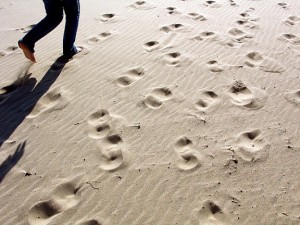Grief and Loss
Loss of a Sibling
A child that experiences the loss of a sibling can sometimes be overlooked when a child dies. Scientific papers mention this family phenomenon. Until twenty years ago, information regarding people suffering from grief and loss over the loss of a sibling was slim. In the sympathy card marketplace siblings are an ignored demographic. Twenty-five percent of living Americans have lost a sibling. What do we know about sibling loss?
Overshadowed:
Regardless of the age of the sibling when the grief and loss occurs, either as a child or as an adult, the surviving siblings tend to be ignored by family and friends. It can be as blatant as asking the surviving children, “How are your parents getting along?” and yet the children of the deceased sibling are not asked, “How are you doing?”
Impact:
How the impact of the loss affects the surviving sibling(s) depends on the age of the sibling at the time of the loss and the relationship the siblings had with each other.
Adolescents: Research indicates that if the loss occurs when a sibling is a teenager the survivors have a greater chance of feeling guilt, anxiety and depression.
Gender: Men have a better time coping with the loss of a sibling then females. Women struggle with depression more than men with this form of loss.
Closeness: If you have had a close relationship to your sibling, regardless of your age, you mostly likely will have a harder time coping with the loss. This holds true especially for children who were still living together in the same household. However, adults who were close to their lost sibling will experience intense emotions as well.
Conflict: Siblings can have jealousies and resentments towards each other. If these issues are unresolved at the time of death, the surviving sibling(s) are left to resolve these conflicts on their own.
Parent: When the loss of a sibling happens at a younger age, healing by the remaining sibling(s) depends on how well the parents cope and how much attention they can devote to their remaining child(ren). If you are an adult when the loss occurs, expect that your parents may lean on you to make decisions. They might forget that you are grieving too.
Guilt: Do not be surprised if you experience survivor guilt-regardless of your age. Feeling guilty because you lived and your sibling did not is a normal feeling associated with the loss of a sibling.
Work: Do not expect your colleagues at work to understand your loss of a sibling. Studies have shown that most people in the work environment do not know how to acknowledge this type of loss. If you do talk about your loss at work, and take extra time off from your job, be prepared to receive less support then you might desire.
As with all losses remember to eat healthy food, drink plenty of water and get sleep. Even if you are not hungry, make sure you eat something. Some people suggest keeping on hand products like Ensure that give you the nutrients you need if eating is difficult for you. On the other hand, be aware that some people tend to overeat to feel better emotionally. Beware of under or over-eating. Drinking water keeps you hydrated. Soda pop and caffeinated drinks might throw your body into imbalance. Grieving takes an amazing amount of physical work. You need to give your body energy in order to grieve. Sleep will help restore your body. If you are unable to sleep through the night, try to catch a short nap during the day or go for a walk before bedtime.
Additional Information About Grief and Loss:
Are you looking for others with whom you can relate? Visit the grief message boards to connect with others who are on similar grief journeys.
© 2010 Kelasan, Inc.






